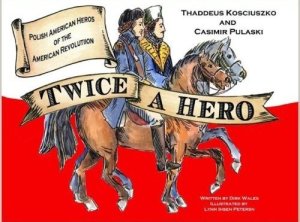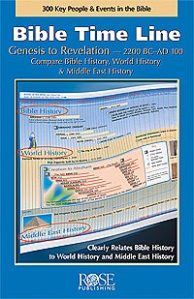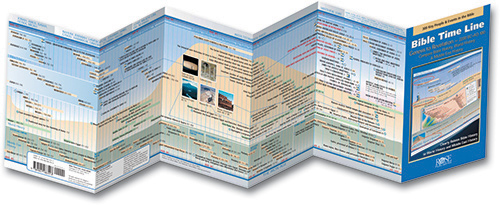Kay Brooks has a great post summarizing the story so far: Good enough for UT, Vandy, Harvard...
The Tennessee Department of Education seems intent on picking a fight with church-related schools in general and homeschoolers in particular. They’ve been “educating” other state agencies for some time now about the fact that so-called “Category IV Schools” in Tennessee are unaccredited and that their diplomas are “worthless.” This has led to the demotion of a police officer who had completed the police academy with a 4.0 average and the forced firing of a daycare worker (from a daycare run by her grandmother!), lest the daycare lose its state license for hiring a child-care worker without a “valid” high school diploma.
One of the good guys, Rep. Mike Bell, is attempting to reassert legislative control over education policy decisions. He’s co-sponsoring a bill, HB1652, that would require the state to recognize Category IV high school diplomas as valid. Alas, he’s meeting resistance from the Department of Education. They’ve countered with an amendment to the bill that would prohibit private, church-related schools from hiring ANY instructor for grades 9-12 who did not have a baccaluareate degree recognized by the State Board of Education.
Below is the message I just sent to the members of the House Education Committee.
Rep. Bell’s bill is scheduled to be heard by the full Education Committee today at 3:15pm central time.
– Rob Shearer
************************************************************
‘rep.leslie.winningham@legislature.state.tn.us’; ‘rep.tommie.brown@legislature.state.tn.us’; ‘rep.joe.towns@legislature.state.tn.us’; ‘rep.barbara.cooper@legislature.state.tn.us’; ‘rep.john.hood@legislature.state.tn.us’; ‘rep.ulysses.jones@legislature.state.tn.us’; ‘rep.mark.maddox@legislature.state.tn.us’; ‘rep.michael.mcdonald@legislature.state.tn.us’; ‘rep.larry.turner@legislature.state.tn.us’; ‘rep.john.windle@legislature.state.tn.us’
To: the honorable members of the House Education Committee
cc: Claiborne Thornton, President of THEA, Doug Fraley, President of MTHEA, and other interested parties:
As the Vice President of the Tennessee Association of Church Related Schools (TACRS), I have a few thoughts on the current controversy around Category IV non-accredited privates schools, their diplomas, and the amendment proposed by the Department of Education to HB1652.
This crisis is the result of the Tennessee Department of Education’s decision to arbitrarily treat category IV high school diplomas as “not worth the paper they are printed on.” The decision by the Department to declare thousands of high school diplomas issued over the past sixteen years as invalid for employment or certification is without precedent, without legal foundation, and without any evidence of any problem associated with those diplomas. When a police department and a day care center are told they must discharge good employees, with excellent records and qualifications, because the Department of Education does not deem their diplomas to be valid, we have a real problem.
This outrageous decision by the Department of Education MUST be (and can only be) overturned by the legislature. The legislature has a duty to correct foolish, capricious, and wicked policy decisions. Make no mistake, the Department has engaged in a raw bureaucratic power grab. There was no act by the legislature adopting this policy. The legislature must act to rein in the Department and reassert its role as the proper policy maker.
For all these reasons, the amended version of HB1652 proposed by Rep. Mike Bell deserves swift passage by the legislature. If the legislature does not act, then a gross injustice will continue to be done to thousands of Tennesseans. The legislature must act to reassert the principle that the department does not make education policy, the legislature does.
As to the draft amendment which has been circulated by the Department of Education, which seeks to impose departmental oversight over teacher hiring by Category IV schools – it too is a raw bureaucratic power grab. There is no crisis. But the Department is suddenly and unilaterally seeking to assert oversight over who can be hired by church-related schools.
The Department, in its proposed amendment, asserts that ALL instructors for grades 9-12 should have a baccalaureate degree from a college recognized by the State Board of Education. Leaving aside the bureaucratic nightmare of the State Board of Education reviewing college diplomas from schools around the country, this assertion is also bad public policy.
Why should ALL teachers instructing grades 9-12 have to possess a college diploma?
Does the Department have statistical, anecdotal, or research evidence to support this policy change?
What evidence does the Department have of any problems which have arisen as a result of instruction in grades 9-12 by private school teachers without a college degree?
A) Is there a problem? If so, can it be defined?
B) Is their proposed solution the right one? Will it fix the problem? How do they know?
If questions A and B above cannot be answered in some detail, then the Department’s amendment is suspect for being arbitrary and capricious.
I can think of dozens of examples of excellent high school instruction which has been and is being given to high school students by teachers who do not have a college degree.
What about a shop class by a skilled artisan/mechanic who does not have a college degree?
What about an art class given by a gifted and accomplished artist who does not have a college degree?
What about a creative writing class being taught by a published author who does not have a college degree?
What about a home economics class being taught by a master chef who does not have a college degree?
What about a computer programming class being taught by a highly skilled and highly paid programmer who does not have a college degree?
What about a course in personal finance being taught by a successful local business owner / entrepreneur who does not have a college degree?
What about a course in military history being taught by a military veteran (also a published military historian) who does not have a college degree?
What about a course in a foreign language being taught by a bilingual instructor, whose native tongue is the language being taught, but who does not have a college degree?
I could go on, but I think you get my drift…
Parents who choose a category IV school for their children’s education know what they are choosing. The legislature has rightly separated private church-related schools from the oversight of the state Department of Education. The Department is prohibited by state law from regulating church-related schools with respect to “the selection of faculty or textbooks or the establishment of a curriculum.” I see no reason to breach that separation, especially on this issue.
If passed, the Department’s amendment would entail a requirement for reporting to and inspection by the Department of all church-related schools. The Department of Education will necessarily want to see detailed records of all classes and all instructors at all private schools in Tennessee to insure that no one without an approved baccalaureate degree has done any instruction. It does not take much imagination to think of the many points of contention and conflict which will result.
On behalf of TACRS, let me state unequivocally that we are strongly opposed to the amendment proposed by the Department of Education.
And, on behalf of TACRS, let me state unequivocally that we strongly urge the legislature to reverse the Department’s arrogant stance that Category IV high school diplomas are “not worth the paper they are written on.” I urge you to pass Rep. Bell’s amended version of HB 1652.
Please feel free to forward this email to anyone you choose. I ask only that the email be sent in its entirety and unedited.
I am willing to meet with any member of the Department of Education or the Legislature and/or testify before the House Education Committee, if you think it would be helpful.
– Rob Shearer
Vice President, Tennessee Association of Church Related Schools
Director, Schaeffer Study Center
www.schaefferstudycenter.org
1000 Woodridge Place
Mt. Juliet, TN 37122
“There is only one good reason to be a Christian – because it’s true.” – Francis Schaeffer











